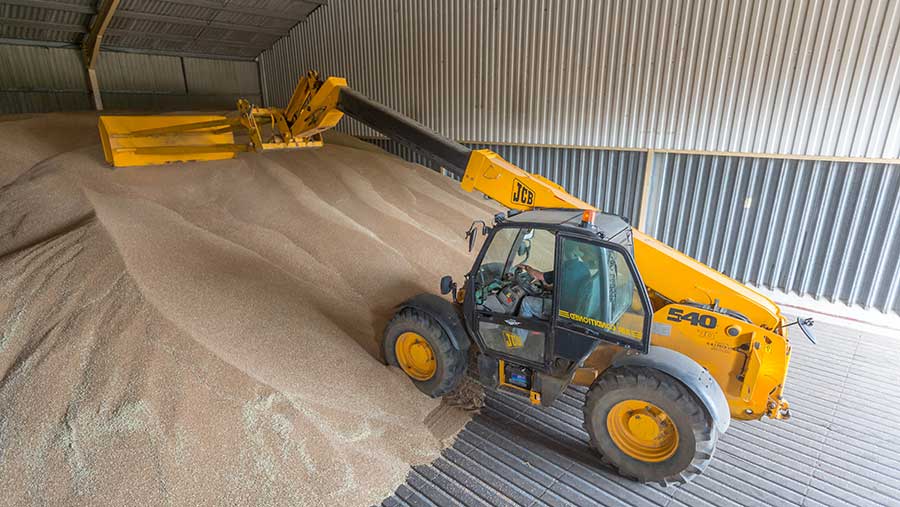High wheat prices likely to cover cost of lower yields
 © Tim Scrivener
© Tim Scrivener The highest feed wheat prices in five years are likely to compensate the majority of UK growers for the fierce heat taking its toll on crop yields.
November prices jumped £3.75/t on Monday as the EU Commission lowered its soft wheat yield forecast for the UK by an additional 1.7% from its June estimate, down to 8.02t/ha.
It also dropped its yield forecast for the whole EU area by 2.6% to 5.8t/ha.
Early reports from the field indicate yields are down some 15-20% on the year, but prices have climbed 18% since the beginning of 2018 from £141.70/t to £179.25/t (24 July).
See also: Harvest 2018: Barley surprises in some areas but worries over wheat
Grain consultant Richard Whitlock said arable farmers should be upbeat at this stage, with the price of grain and straw high and the cost of harvest very low as grain driers across the country stand idle.
But he warned the price of wheat was now heading towards import parity with maize, which means grain buyers will find it cheaper to import maize from abroad, even under a tariff from outside the EU, than buy domestic wheat.
How do maize tariffs work?
The majority of maize used in the EU is traded between European Union member countries and is therefore subject to no tariffs.
Maize that enters the European Union is subject to a variable-rate tariff. The price it is being traded at on the Chicago Board of Trade exchange, plus delivery and all other costs to deliver it to Rotterdam, is converted into a figure expressed in euros per tonne.
This is then compared to an EU reference price of €157.03. If the value of maize is lower than the reference price, the importer pays the difference in import duty.
With maize often interchangeable with wheat for use in feed rations and ethanol production, this protects the market for arable farmers, but disadvantages livestock farmers who buy feed.
“If I was a strategic farmer I would be very content to sell 20-30% of my crop at these levels and bank some,” he said.
“The bubble will burst. The compounders and flour millers are not doing nothing.”
Mr Whitlock said bioethanol manufacturer Ensus also has the capability to switch more of its consumption to maize (unlike rival Vivergo, which can only use wheat) and if it did so, that would significantly reduce demand.
Graham Atkinson, managing director of ADM Arkady, which supplies grains to livestock feed mills and ethanol plants, including whole and ground maize, said the company had had its busiest July on record after the first three weeks of trading.
He said feed manufacturers which normally use wheat are already switching to imported maize in their rations in quantities last seen in 2012.
However, he said the market was entirely demand driven at the moment, with compounders nervous about reports of lower-than-average beet crops as well as cereals.
